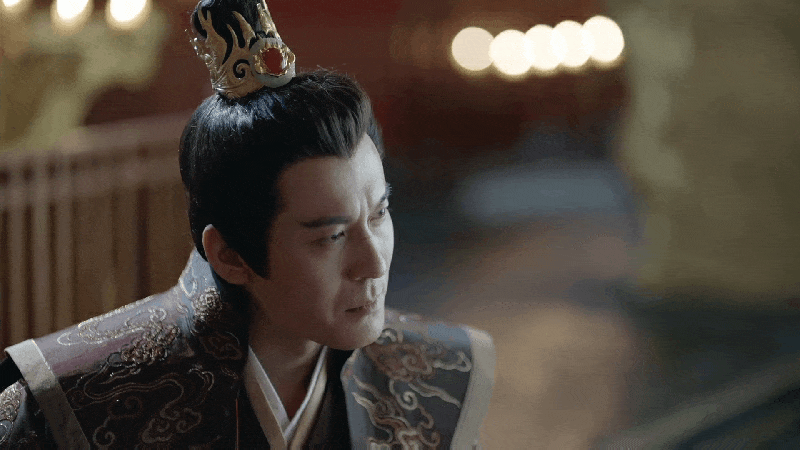#주자서 도련님 모먼트
Text
瓦罐難免井上破,將軍終究陣前亡
The pot cannot be broken except leaving the well, a general is meant to die at the battlefield.
It's from 水滸傳(shuǐ hǔ zhuán; Water Margin) by 施耐庵(Shī nài ān), in 明朝(ming dynasty). It's a story of 108 outlaws in 梁山泊(Liáng Shān pō) which is a part china now it's 濟寧(Jĭ níng), Southern part of china. The story is about how a group of 108 outlaws gather at Mount Liang(梁山) to rabel against the government. Later they are granted amnesty and enlisted by the government to resist the nomadic conquest of the Liao dynasty and other rebels. I have read this when I was young but I don't recall the phrase, as it's not that common phrase where I live. The actual line is,
瓦罐不離井上破,將軍必在陣中亡
A water pot cannot be broken around the well, a general must die in battlefront.
It means, the water pot is used to go to a well, so during it's used around the well it cannot be broken because it's in use, then when a person carries to somewhere the possibility of breaking rise. So Qin wang is saying that the water pot is 秦九霄(Qin jiuxiao), and the well is 晉州(Jin zhou). Qin jiuxiao was meant to die at battlefield.

天子之怒,流血漂櫓;布衣之怒,血濺五步,卻令天下縞素。
The emperor's wrath causes rowing on the blood, The scholar's wrath, the blood flows in five steps. Therefore, the taching was, making the world carefree.
This line is from 唐雎不辱使命(táng jū bù rǔ shǐ mìng; An achievement of embassador 唐雎) by 劉向 撰(liú xiàng zhuàn) in 兩韓(liang jhan)era . It's a dialogue of 秦王(King of Qin) and 唐雎(an embassador of 魏; wei). 唐雎 went to 秦 for negotiate territorial dispute between 秦(qin) and 魏(wei). The actual sentence is, Therefore, make the world carefree.
秦王曰:天子之怒,伏尸百万,流血千里。
Qin wang said: the emperor's wrath, countless bodies cover the land, the blood runs like a river.
唐雎曰:此庸夫之怒也,非士之怒也。若士必怒,伏尸二人,流血五步,天下缟素,今日是也。
Tang ju said: The wrath of normal people and talented people may differ. If a scholar with talent is persecuted, he will surely get angry. Then there will be two bodies and the blood would be five steps long, and every commoner will be mourning. Today, let it be.
The behind story here is that Qin wang wanted to have very wide territory to stop the war, when Wei were already in ruin. So Tang ju was actually on death mission that if he loose any territory of Wei, in anyways he would die by Qin wang either Wei wang. At the end Qin and Wei agreed on a treaty.
I love the time of Qin era which is BC. of Asian history, as my favourite chinese historical great human is 宣太后(Queen Dowager Xuan), So I remember him, 唐雎 is a textbook figure for diplomats for very long time as he didn't loose any territory only with a conversation. Even though Wei didn't last long for that.

晉王(Jin wang) is keep saying his retainers are peices on the chessboard(here it must be 碁;go board). Like whatever he does, there will be death bodies as far as it's not himself, those death doesn't really matter. Then for Zhou zishu is saying if a king doesn't think about the commoners, what meaning is there to be a king? This scene has many metaphorical meanings which can be found in historical drama. Look at thoese quoted sentences, it is definitely a conversation of a king and a noble man.
Jin wang is only thinking about himself, I'm not so sure even what he wants is Zhou zishu. Why he was angry at Zhou zishu is that Zhou zishu didn't say and ask him first to leave. When Zhou zishu had left, he said he just let him go for awhile, Jin wang had never let Zhou zishu go.
It's really shame, Wen kexing never knew Jin wang, I can't even imagine what would he do to Jin wang if he knows all these fiascos.


+ Oopsi daisy, it was (晉王)Jin wang not (欽王)qin wang (˵ ͡° ͜ʖ ͡°˵)
#山河令#word of honor#shan he ling#shl#산하령#배움이 짧아서 모르겠어#사서삼경#역사서..#왕이랑 도련님대화라 그런가#인용구가 아주 고급진것이 미쳤네#주자서랑 진왕#너무 맛있다#wenzhou#온주가 맛있는건 진왕때문이야#Jin wang is a spicy for wenzhou#Jin wang makes wenzhou taste better#How noble they are discussing things with old books and phrases#주자서 도련님 모먼트#ep30#ep 30
9 notes
·
View notes
Text
The title and the authour of this poem is unknown. It's from 古詩十九首(gǔ shī shí jiǔ shǒu; 19 old poems). The poem is regared from 漢朝(Han dynasty). Unlike the other old poems most of the poem are lyrics, singing love.
明月何皎皎 照我羅床緯
How bright the full moon! moonlight shines on my bed.
憂愁不能寐 攬衣起徘徊
Sleepless night, roem around holding sleeves.
客行雖云樂 不如早旋歸
Traveling may be pleasant, but would it be better than coming home?
出戶獨徬徨 愁思當告誰
Stray about all alone, who would I tell my worries of you?
引領還入房 淚下沾裳衣
Look faraway in vain, heading back in while tears soak my clothes.
This poem is about a wife worrying her hushand during the night under moonlight. This poem is definitely a lyric.
It changes my understanding of Zhou zishu totally. It was Wen kexing who sings love poems not Zhou zishu!! As how I love his noble moment, he must have known the meaning of that. WHY?? why would you say that??

it's because of Wen kexing's name. How Zhou zishu understood his name with dividing may not be the case here but Wen kexing said one of the old poem from 古詩十九首.
人生天地間 忽如遠行客
Living in this world is like a wanderer who hurries the road.
The common meaning of this poem is just enjoy the drink and live the moment. But some interpretations saying that the speaker of the poem is worrying something. According to the historical aspects it's the ruin of the nation. Think about Wen kexing's situation in ghost valley it's comprehensive.
This is why Zhou zishu saying the love poem❤️ Because it's also from 古詩十九首. Here is Zhou zishu noble moment, I'm sure he must have chosen, picked and selected from the poem and finally he decided to say that. Well they both are under the moonlight. Somehow, Zhou zishu knows Wen kexing leaving. At that moment he says the poem which means he would be waiting for Wen kexing. 으아아아아아아아아烈女怕纏郎!!!!열녀가넘어가버렸어!!!!!!
#山河令#word of honor#shan he ling#shl#산하령#배움이 짧아서 모르겠어#이름하나에 시가 몇개야?#미쳤나봐#주자서 도련님 모먼트#고시십구수#영어에는 量詞가 없고 한국어에서는 그 존재가 희미해져서 뭐라고 말해야할지 모르겠어#주자서도 감겼네#아주 둘이 좋아 죽네..증말..#아주 둘이 죽이 잘맞아#너무좋아 죽을거 같아#ep 25#ep25#너네 그거 사랑이야#쌍방이라고#크아아아아아아아아아아아#망한사랑인줄알았는데 아니었습니다#wenzhou
8 notes
·
View notes
Text
天涯孤鴻¹,無根行客²。
Faraway a lone goose, rootless wanderer
執子之手³,坐看雲舒⁴。
Holding your hands and watching the clouds to scatter.
Wow there are so many quotes in those sentences. Those have its own meaning with mixing, so you don't have to read all the references, you may choose which part or who's saying you are more interested.
The poems Zhou zishu saying are missing old times and loneliness. The speakers of both poem were in the harsh situation, still they tried to keep their fidelity. Maybe that's what Zhou zishu sees in Wen kexing.
The poems Wen kexing saying are mixture of feeling and relief? emptiness?? I'm not sure. The first part of the sentence is definitely flirting, then the last part has philosophical meanings. Somehow, Wen kexing is saying, he would just watch clouds and leave his vengeance behind if Zhou zishu is there with him, holding hands watching clouds together. 아으아아아아아아아아아아아아아아아아 온객행 미친놈 주자서한테 미친놈아아아아아아 ༼;´༎ຶ ༎ຶ`༽

1. 孤鴻
The title is卜算子·黄州定慧院寓居作 (bǔ suàn zǐ · huáng zhōu dìng huì yuàn yù jū zuò; write in 定慧院, huang zhou)
缺月掛疏桐,漏斷人初靜。
The wane moon hanging on the bare trees. In the dark night there is no sound nor people.
誰見幽人獨往來,縹緲孤鴻影。
Who would look a hermit walks, it looks like a shadow of flying away goose.
驚起卻回頭,有恨無人省。
Startled awake then look back, There is nobody who knowsy sorrow.
揀盡寒枝不肯棲,寂寞沙洲冷。
Hesitated to land which bare trees to sat on, where I sat the dreary sand is just cold.
This poem has written by 蘇東坡(sū dōng pō) in 明朝(Ming dynasty). At that time 蘇東坡 was banished away from his home. His poem was very metaphorical that the other were framed him with treason. So his poem is very nihilistic. Here the 孤鴻(gū yàn; a lone goose) is the poet who's situation is not a goose but the shadow of it. He did not plead guilty of his charge. Even his living was petty he didn't want to be being petty. 孤鴻 means one's fidelity.
2. 無根行客
The title of the poem is 憶少年·別歷下(yì shǎo nián · bié lì xià; who misses 歷下) by 晁補之(cháo bǔ zhī) in 宋朝(Song dynasty).
無窮官柳,無情畫舸,無根行客。
Eternal willow avenue, ruthless waterways, rootless wanderer.
南山尚相送,只高城人隔。
Saying farewells in 南山(nan shan, south mountain), the hight rampart cleaves us.
罨畫園林溪紺碧,算重來、盡成陳跡。
Small stream in the garden, green and blue, wherever I go, our trace has gone.
劉郎鬢如此,況桃花顏色。
When my hair is turning white, where the young peach flourish.
This poem is missing someone when the speaker is getting older. The opportunity to see each other getting thin.
3. 執子之手
This is from 詩經(shi jing; Classics of poem), it is in one of the chapter, 國風(guo feng). Also it has 160 peaces of poem, and this is from 邶風(Bei feng; bei nation's fork song). The title is 擊鼓(ji gu; Drumming).
The speaker of this poem is a remnant of the defeated war. He was missing home and family. The poem has 5 parts, the quote is from the 4th one, which is a lyric.
死生契闊 與子成說
Dying, living, facing, parting, promised to do so together.
執子之手 與子偕老
Clutching your hands, Promised to be old together.
4. 坐看雲舒
and the next part is from 小窗幽记(xiăo chuāng yōu jì). This sentence is very famous that used in other literature in many other countries (mainly chinese character boundary). It is also in 菜根譚(cài gēn tán) from 明朝(Ming dynasty) somehow it wasn't so popular in china but it was in Korea.
寵辱不驚, 看庭前花開花落;
No fright for be honored or be ashamed, saunter the small garden Watching flowers to bloom and to fall.
去留⽆意, 望天上雲捲雲舒
Come and go are meaningless, thoughtlessly look up the say, clouds to gather, to scatter.
It's very philosophical, it shows nihilism. Whatsoever person does cannot be affect the others. So don't need to think about what happens and worries don't matter.
#山河令#word of honor#shan he ling#shl#산하령#배움이 짧아서 모르겠어#아니 이 짧은 단어에 대체 시가 몇개야??#좀 통일 해라#주자서도 감겼네#온객행 미친놈ㅋㅋ주자서한테 미친놈#아주 둘이 죽이 잘맞아#아주 둘이 좋아 죽네..증말..#ep25#ep 25#주자서 도련님 모먼트#너네 그거 사랑이야#쌍방이라고#wenzhou
5 notes
·
View notes